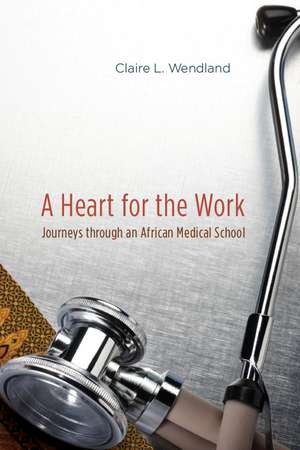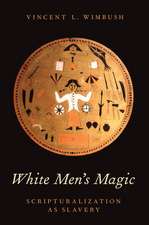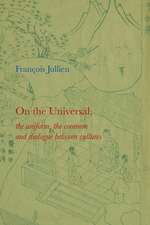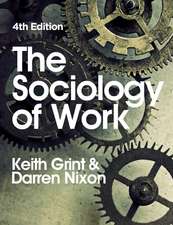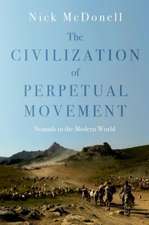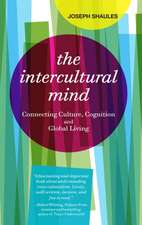A Heart for the Work: Journeys through an African Medical School
Autor Claire L. Wendlanden Limba Engleză Paperback – 23 sep 2010
Wendland, a physician anthropologist, conducted extensive interviews and worked in wards, clinics, and operating theaters alongside the student doctors whose stories she relates. From the relative calm of Malawi’s College of Medicine to the turbulence of training at hospitals with gravely ill patients and dramatically inadequate supplies, staff, and technology, Wendland’s work reveals the way these young doctors engage the contradictions of their circumstances, shedding new light on debates about the effects of medical training, the impact of traditional healing, and the purposes of medicine.
| Toate formatele și edițiile | Preț | Express |
|---|---|---|
| Paperback (1) | 257.60 lei 6-8 săpt. | |
| University of Chicago Press – 23 sep 2010 | 257.60 lei 6-8 săpt. | |
| Hardback (1) | 604.03 lei 6-8 săpt. | |
| University of Chicago Press – 30 sep 2010 | 604.03 lei 6-8 săpt. |
Preț: 257.60 lei
Nou
Puncte Express: 386
Preț estimativ în valută:
49.29€ • 51.59$ • 41.03£
49.29€ • 51.59$ • 41.03£
Carte tipărită la comandă
Livrare economică 31 martie-14 aprilie
Preluare comenzi: 021 569.72.76
Specificații
ISBN-13: 9780226893273
ISBN-10: 0226893278
Pagini: 352
Ilustrații: 8 tables
Dimensiuni: 152 x 229 x 36 mm
Greutate: 0.45 kg
Editura: University of Chicago Press
Colecția University of Chicago Press
ISBN-10: 0226893278
Pagini: 352
Ilustrații: 8 tables
Dimensiuni: 152 x 229 x 36 mm
Greutate: 0.45 kg
Editura: University of Chicago Press
Colecția University of Chicago Press
Notă biografică
Claire L. Wendland is assistant professor in the departments of Anthropology, Obstetrics and Gynecology, and Medical History and Bioethics at the University of Wisconsin–Madison and honorary senior lecturer in the Department of Obstetrics and Gynaecology at the University of Malawi College of Medicine.
Cuprins
Acknowledgments
Abbreviations
Prologue: Arrival Stories
1. Introduction: Moral Order and Medical Science
All Part of the Same Big Mess: Mkume Lifa
2. Medicine and Healing in a Postcolonial State
Serving Our Nation: Joe Phoya
In the District: Evelyn Kazembe
3. Paths to Medicine
Welcome to the College of Medicine
4. Seeing Deeply and Seeing Through in the Basic Science Years
Welcome to Queens
5. The Word Made Flesh: Hospital Experience and the Clinical Crisis
Complications: Johnson Chisale
On the Ward: Enelesi Nyirenda
6. Resource Is a Verb: Realities and Responses
Someone Else in This World: Duncan Kasinja
As Human as Everybody Else: Zaithwa Mthindi
7. Doctors for the People: Theory and Practice
Epilogue: Departure
Technical Appendix: Research Methods
Notes
Glossary
References
Index
Abbreviations
Prologue: Arrival Stories
1. Introduction: Moral Order and Medical Science
All Part of the Same Big Mess: Mkume Lifa
2. Medicine and Healing in a Postcolonial State
Serving Our Nation: Joe Phoya
In the District: Evelyn Kazembe
3. Paths to Medicine
Welcome to the College of Medicine
4. Seeing Deeply and Seeing Through in the Basic Science Years
Welcome to Queens
5. The Word Made Flesh: Hospital Experience and the Clinical Crisis
Complications: Johnson Chisale
On the Ward: Enelesi Nyirenda
6. Resource Is a Verb: Realities and Responses
Someone Else in This World: Duncan Kasinja
As Human as Everybody Else: Zaithwa Mthindi
7. Doctors for the People: Theory and Practice
Epilogue: Departure
Technical Appendix: Research Methods
Notes
Glossary
References
Index
Recenzii
“Drawing on an impressive amount of original, empirical research and written in an engaging style, A Heart for the Work is an extremely interesting look at medical training in Malawi. Claire Wendland argues that trainee doctors, facing an enormous gap between the ideals of their training and the conditions of medical practice, forge their own set of practical ethics and their own professional culture. Though this creativity is largely born of necessity, it is remarkable.”
“Wendland delivers a tour de force on the culture of biomedicine and biomedicine as African healing. A Heart for the Work details how the clinical experience for Malawian interns yields a very different outcome than in the global North, despite similar courses and curricula. Rather than emotional detachment from their patients in a stance of scientific objectivity, they commit to ‘love, passion, and spirit’—‘having a heart for the work, for their patients’ in a moral economy shaped by extensive kinship ties, religious ideals, the need for hope when medicines are scarce, Umunthu— humanity—and political engagement. Wendland argues for the cultural understanding of all medicine, including that in the North driven by high-tech, pharmaceutics, and ‘objective’ science.”
“Wendland delivers a tour de force on the culture of biomedicine and biomedicine as African healing. A Heart for the Work details how the clinical experience for Malawian interns yields a very different outcome than in the global North, despite similar courses and curricula. Rather than emotional detachment from their patients in a stance of scientific objectivity, they commit to ‘love, passion, and spirit’—‘having a heart for the work, for their patients’ in a moral economy shaped by extensive kinship ties, religious ideals, the need for hope when medicines are scarce, Umunthu— humanity—and political engagement. Wendland argues for the cultural understanding of all medicine, including that in the North driven by high-tech, pharmaceutics, and ‘objective’ science.”
“This engaging and at times contentious book explores the lives of Malawian medical students and, through their stories, questions our assumptions about medicine, Africa, colonialism and globalization. . . . A fascinating work.”
“Claire Wendland provides a compelling account of medical training in Africa in A Heart for the Work. In her analyses of the socialization of Malawian physicians and the practice of African biomedicine, Wendland makes a valuable contribution to the literature on medical power/knowledge, particularly in poor and postcolonial contexts, and provides an all too rare example of anthropology ‘studying up’ in Africa. Herself a Northern-trained obstetrician-gynecologist and anthropologist, Wendland uses her case to argue that biomedical professionals everywhere are shaped as much by the social, cultural, and material conditions in which they train and practice as by the characteristics of biomedicine in hegemonic form. This coproduction, then, has important consequences for individual physicians and, through their medical practice, for their patients and their nation.”
